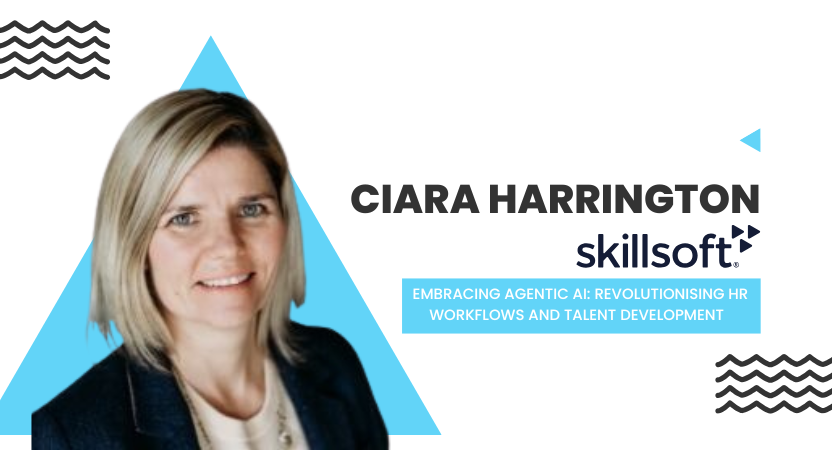As nearly all of HR teams report burnout, the pressure on HR leaders, like Chief Human Resources Officers (CHROs), to deliver impactful results has reached unprecedented levels. In this high-stakes environment, leaders must urgently implement effective solutions, positioning business and digital transformation as critical pathways to success. Among these transformative solutions, agentic AI stands out, set to revolutionise the HR landscape and redefine the future of human resources.
Agentic AI refers to the systems capable of autonomously making decisions and executing tasks on behalf of organisations, with Gartner reporting that the technology is expected to automate 15% of day-to-day work decisions by 2028. However, 85% of HR leaders say their organisations have yet to implement agentic AI, and 73% say employees lack the understanding of how digital labour will impact their work.
As digital transformation accelerates, embracing technologies like Agentic AI is no longer optional – it's essential for maintaining a competitive edge and cultivating a dynamic, engaged workforce. So, how exactly can agentic AI reshape HR practices and pave the way for a more resilient, future-ready workplace?
The transformational impact of agentic AI on HR teams
With AI agent adoption set to increase by 327% over the next two years, the possibilities appear endless. Once fully implemented, CHROs anticipate a boost in employee productivity by 30% and a 19% reduction in labour costs, with the intelligent systems set to take on tasks like recruitment, onboarding and employee engagement.
Agentic AI can automate key activities such as writing job descriptions, generating tailored interview questions, and providing structured feedback through sentiment analysis. This can make the hiring process faster, smarter, and more effective, improving an organisation’s ability to acquire top talent quickly.
Despite these advancements, it is important to stress that agentic AI will never replace the essential human qualities that define great HR professionals, such as communication, empathy, and judgement. Instead, it will be there to manage routine tasks, allowing HR professionals to focus more on strategic roles requiring emotional intelligence, creativity, and complex problem-solving.
Moreover, HR professionals will need to develop skills, such as data analysis and strategic decision-making, to work effectively alongside AI. By combining the technological efficiency of AI tools with human insight, HR teams can drive more dynamic and resilient workplace environments.
The role of agentic AI in talent development
According to the World Economic Forum’s 2025 Future of Jobs Report, by 2030, nearly two-thirds of workers globally will need training to succeed in their current roles or transition into entirely new jobs.
Working in tandem with HR professionals, agentic AI can offer a solution to this widening skill gap by providing personalised learning pathways for employees. By analysing each employee’s skills, career goals, and development stages, AI can recommend relevant courses, microlearning modules, and development opportunities tailored to individuals. This approach will not only accelerate upskilling and reskilling but will ensure that learning aligns with both current job requirements and future career aspirations.
In addition, agentic AI can facilitate the integration of performance feedback. By analysing performance data, it can provide personalised feedback and suggest areas for improvement. For instance, if an employee excels in teamwork but struggles with time management, the technology can recommend specific courses or exercises to improve those skills. This real-time feedback can enhance skill retention and boost learner confidence.
Agentic AI can also integrate with interactive learning platforms that offer gamified, scenario-based training. These virtual reality simulations can help employees solve real-world business problems, enhancing their critical thinking and problem-solving abilities.
Transforming workforce planning
Traditionally, workforce planning has been a sporadic, reactive task. However, agentic AI can transform it into a continuous, strategic practice. By systematically mapping existing skills and detecting gaps, AI can provide real-time insights, allowing HR teams to anticipate changes and adapt strategies proactively. For example, if there is growing demand for data scientists, agentic AI can recommend upskilling programs or suggest strategic hiring approaches for HR professionals to weave into talent and onboarding strategies. Understanding these trends can enable informed decisions about hiring, training, and resource allocation.
Furthermore, agentic AI can assist in recruitment planning based on skills gap analyses. If a company needs to expand its AI capabilities, the technology might suggest hiring data scientists and machine learning engineers, while also recommending internal training for current employees. With this data in hand, HR teams, and organisations as a whole, will be better positioned to take on whatever challenges come next.
Empowering HR for the future
Agentic AI is set to become a vital force in creating intelligent, future-focused HR strategies. By embracing agentic AI as a collaborative partner, HR leaders can streamline operations, personalise talent development, and focus on what matters most: empowering people.
Integrating agentic AI into HR functions means that organisations can not only alleviate the burden of routine tasks but unlock new opportunities for innovation and growth that will provide them with a distinct competitive advantage. HR leaders who adopt agentic AI will be best equipped to guide their organisations through ongoing transformation and drive a meaningful and lasting impact.






